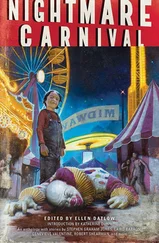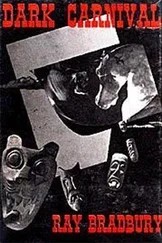Otto laughed and didn’t answer.
Sir, the man said, you have to answer me, because if you refuse to cooperate, we might just have to restrain you.
Otto looked across the room and saw one of the officers who had beaten him standing in the back with a file folder in his hand. The officer looked indifferent and kept his eyes on the table pretending not to hear, but Otto knew that the officer was listening and Otto felt alone.
Are you seriously taking me to a mental hospital? he said.
Sir, do you understand what I just told you, yes or no.
Otto nodded and the officer approached the orderly and gave him the file.
IN THE BACK seat of the car Otto was squeezed between the two men. He was silent and never said a word.
When they arrived he was led down a hallway and into a room. The room had no windows; it had a metal bed and a chair in the corner and nothing else.
A nurse came to Otto and handed him a hospital gown.
Take off your clothes and put on the gown. The doctor will come for you.
I don’t need a doctor, he said, but before he had a chance to say anything more, the woman left and locked the door behind her.
Otto refused to stretch himself out on the bed. That, he thought, would constitute an admission of a pathological state. So he went to the chair in the corner and sat. Then he realized that he was thirsty. He banged on the door and a few seconds later the same nurse opened it and said, You better keep it down.
I need water, I am thirsty.
She closed the door and a few seconds later opened it again, and Otto stood there with a paper cup in his hand and drank. When he was done, the nurse took the paper cup away.
In the room Otto’s mind wandered. He talked to Aisha and offered her a larger pillow, he asked her if he should bring the bed up or call the nurse, he told her to be patient until the doctor came back, he promised to smuggle hash into the hospital, he thought it might relieve her nausea. And then he felt like weeping, but that might also be an indictment of madness, he thought.
He had been stripped of everything, but it was the metal bed that he loathed and feared the most. He wished he had some alcohol, or company, or a book. Most of all he longed for Aisha, to see her lying on her favourite couch reading with the sun on her back, her round exposed thighs, her glances at him between pages, her grimaces of endearment and disapproval: at his singing, his loudness in the kitchen, his long rants about jazz and politics, his cursing in the mornings. Her childlike obsession with pages and words.
He thought about Aisha’s life, her childhood after the exodus of the white people to the suburbs for fear of property value depreciation when the blacks moved in. The only white person who stayed behind was Mrs. Rooney, a retired librarian and an avid reader. She decided to stay because, as she liked to say, she had enough love for everyone. I will die here, among the good people of this land, she’d say. All races are good by me. I don’t see why everyone is in such a rush to leave. With time, Mrs. Rooney started to lose her eyesight, and she relied on her good neighbours to bring her food and medicine.
One day, while Aisha was reciting her homework in the hallway, Mrs. Rooney invited her in. Sit down, child, and read to me, she said. You read so well. So every day Aisha would go to Mrs. Rooney and read to her and indulge in her cookies and sweets. And every once in a while Mrs. Rooney would hand Aisha some coins, which Aisha would keep hidden in her winter shoes in the summer and then switch to her summer shoes in the winter. A few seasons passed and then Mrs. Rooney’s nephew came and took the old lady to a nursing home; her sight had gotten worse and she’d almost burned down the building. The night before her departure, Mrs. Rooney called Aisha and said, Choose any book from my library and I will recite it to you. And Aisha chose a book and Mrs. Rooney started reciting it all by heart. Aisha was bewildered and sad. If you have them all in your head, she asked, why did you make me feel needed?
I just wanted you to read and cultivate a love for books, my child, the old lady said, and asked Aisha to come closer. I am giving away all my books to the library, Mrs. Rooney told her, all of them. I won’t give you any of my books, because now that you are a reader, you have to read your people’s books.
And then she gave Aisha a card and told her, When you reach the age of twenty-one, you call this number. My girl, I did leave something for you after all.
Aisha passed the age of twenty-one and never called. She’d misplaced the card, and Mrs. Rooney seemed a thing of the past. One day, though, the lawyer for Mrs. Rooney’s estate telephoned and asked Aisha to come and visit him at his office. Mrs. Rooney had left her a humble cottage with a piece of land around it, and a modest amount of money.
When Aisha and Otto and I went our separate ways, they decided it was time to leave the neighbourhood. They moved to the cottage and stayed there for a few years. Aisha loved it. Seclusion suited her, and the cottage was distant from everything. They took long walks to the nearest village and carried the food home on their backs. In the summer, they sat under the large tree that shaded the cottage and cooled the breezes that passed by. Aisha would read and Otto would smoke pensively and curse the flies. In the winter, they used the metal stove that was in the middle of the room. They lived frugally on the little inheritance. The cottage was equipped with an axe and a shovel and all that was needed to survive a winter.
But after a while Otto got restless. They would go for days without encountering another person, and for weeks without receiving a single visitor. The ascetic life was too much for him to bear. Otto got a part-time job at the quarry. He would hitchhike with the lumber trucks and the few locals who by now knew of the black couple’s existence in the village. Then Aisha got sick and they had to go back to the city for treatment.
After months of agony, sickness, and the hospital’s miseries, Aisha whispered to Otto, It is over. Take me back to the cottage and bury me under that tree, away from these metal beds and crosses.
And that is what Otto did. When she died, he left her body lying in a makeshift bed for two nights and on the third day, he took the shovel and dug a hole under the tree and buried her. And then for the next seven days, he polished a large stone until it turned smooth and glossy. He set it at her grave and wrote on it: Here lies a reader and a fighter. He read her favourite poem and then he turned away from the grave. He closed the door of the cottage and walked back towards the city.
In his room in the psychiatric ward he tried to remember that poem. He remembered the original name of the poet but couldn’t remember the name he’d chosen later in his life. Everett LeRoi Jones, he repeated, yes, but what was the new name? An African name, yes, an African name. Maybe I should have changed my name, he thought. But I tried that, and those brutes didn’t believe me. Instead they put me in here. The poem, he thought. The poem, Aisha’s favourite poem:
Dull unwashed windows of eyes
and buildings of industry. .
And then what, Otto said to himself, trying to remember. And then what. . He fixed his eyes on the metal bed. Say it for me, darling, one more time. . He was talking out loud, and he stopped himself. But then what, my love. Say it again, he whispered, turning his back to the door. Could someone read that poem to me? And again he heard his own voice and he hushed himself and moved the metal chair to muffle the spoken words.
After a few hours, Otto was still in the room in a hospital gown, and he was starting to feel the cold on his exposed legs and bare back. The woman had taken his clothes away. He thought about covering himself with the bedsheet, but to take the cover off the bed and wrap it around himself would only make him look like one of those hobos with no teeth, shivering around the barrel’s fire.
Читать дальше












